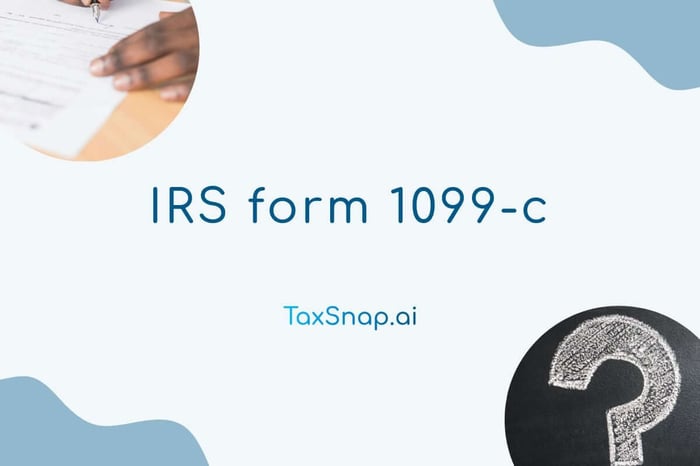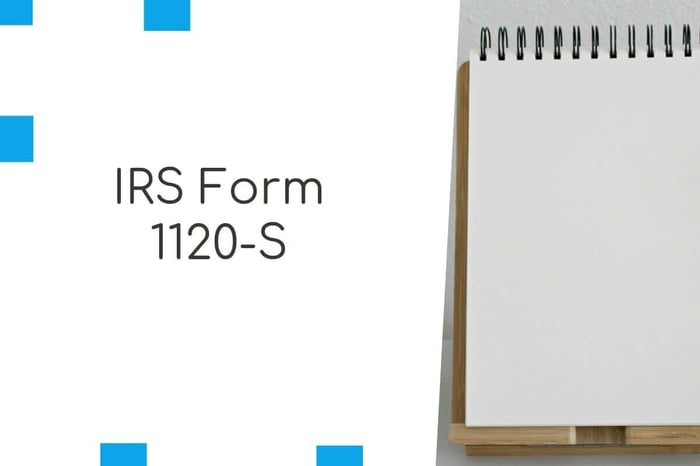IRS Form 1099-C: Cancellation of Debt
Certain creditors use form 1099-C to report debt that is categorized as either canceled or forgiven. Why would this be important to you?
Understanding IRS Form 1099-C
Form 1099-C, "Cancellation of Debt," is a crucial document provided by certain creditors to both the Internal Revenue Service and taxpayers. The main purpose of this form is to inform an individual and the IRS that a debt has been either forgiven or canceled by a creditor. Most of the time, debt cancellation will be classified as income, except for a few instances, which are outlined later on.
Instead of annual updates (as practiced previously), the 1099-C is a continuous-use form. It can be updated at any time, creating accurate and up-to-date information for involved parties.
Who Must File Form 1099-C, Cancellation of Debt?
Fortunately, not every instance of canceled debt will require a Form 1099-C. There are certain entities outlined by the IRS that are required to file if the debt is an amount of $600 or greater. Financial institutions, such as domestic banks, credit unions, trust companies, building and loan associations, or savings and loan associations are included in these certain entities.
In addition to those certain entities, a few government agencies must also file Form 1099-C: the Federal Deposit Insurance Corporation (FDIC), the National Credit Union Administration (NCUA), and/or their successors and subunits.
Common Scenarios That Trigger a Form 1099-C
An identifiable event is when scenarios occur such as a home foreclosure or an abandonment of a secured property. These instances may or may not be associated with forgiven debt, but can trigger a 1099-C.
Home Foreclosure: Debt cancellation in connection with a foreclosure can trigger a Form 1099-C. If a home owner or debtor can no longer meet payments on a mortgage and must foreclose on a property, the lender will repossess the property. If the lender sells the property at a price that is greater than debt owed on the loan, they may decide to cancel the debt amount difference (debt forgiveness), thus triggering a 1099-C.
Abandonment of Secured Property: This identifiable event occurs when a person knowingly gives up a property that secures a loan, without transferring it to another party. Abandonment is specific and the owner must intentionally discharge or abandon the property and take the actions to demonstrate such. If the lender acquires the property and chooses to cancel a debt greater than $600, they will issue a 1099-C. This form will include the fair market value of the property at the time of abandonment. An instance like this is considered ordinary income and the individual who abandoned the property must include it in their tax return and may owe taxes as a result.
Key Aspects and Reporting Requirements for Your Tax Return
Statements to Recipients: If a creditor files form 1099 in your behalf, due to cancelled debt, that creditor must provide a copy of the form to you. That statement will outline what the identifiable event is and the amount of debt canceled.
Taxpayer Identification Numbers (TINs): The IRS requires you to provide a Taxpayer Identification Number (TIN) (such as your social security number) in order to ensure compliance with all tax laws, and to allow for accuracy in tax calculation and collection.
Backup Withholding: In rare situations, backup withholding rules might apply. This means that a portion of the canceled debt could be withheld by the payer.
Penalties: If you are a creditor who files a form and you do not comply with the filing requirements, you will be penalized. Penalties, in the form of fines, may be issued for incorrect information, failure to file, or other insufficiencies.
Exceptions to Taxable Income
Canceled debt is usually taxable. However, there are instances where rules or exceptions are made. For example student loan indebtedness, and bankruptcy or insolvency are not always taxable situations. Not all instances have exceptions, so it is crucial to consult a tax professional or the IRS for guidance on your specific situation.
Purpose of Information Collection
The IRS collects information needed to ensure tax law compliance. They collect information from Form 1099-C for this reason. The information collected is used to assist in calculating the correct amount of tax and will generally remain confidential. It may be disclosed to individuals or entities when appropriate, as outlined in the IRS guidelines.



